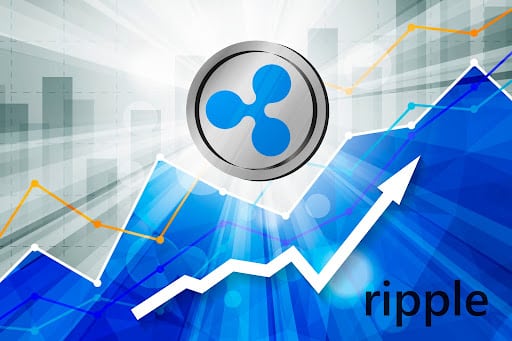ripple cryptocurrency in the bright rays on background with statistics chart and arrow going up
Ripple’s XRP emerges as a potential solution to the problems of instant payments in the U.S., promising efficient cross-border transactions and reduced costs.
In the face of FedNow’s slow progress, XRP offers an efficient alternative, with Ripple advocating its adoption amid regulatory and industry challenges.
The United States, a global leader in finance, has yet to implement an effective instant payments system. Although hundreds of banks use the Federal Reserve Bank’s FedNow service, progress is slow, earning it the nickname “FedLater” among bankers. This situation contrasts with countries such as the UK, China, India and Brazil, which already enjoy instant payment systems.
Limitations of the Current System
The existing infrastructure in the U.S., despite handling 30 billion payments last year, is reeling under significant constraints. It does not operate on weekends and suffers delays that affect millions of Americans who depend on the timely arrival of their paychecks.
FedNow promises 24-hour funds availability, a significant advance, but its integration requires time, investment and development of user experience software, fraud controls and other systems.
Large Banks in Transition
Large banks such as JPMorgan Chase and Bank of New York Mellon are adopting this network, but their integration is gradual. The reality is a mixed system where some banks offer limited instant payment services and others have not yet joined. Because of this, FedNow has only attracted about 300 lenders.
The slow adoption of FedNow has created a niche for alternative financial services such as payday lenders and check cashing stores, with high costs for consumers. Michael Barr, Vice Chairman of Supervision at the Fed, acknowledges that widespread access to instant payments is a distant goal.
Ripple’s XRP: A Game Changer?
Against this backdrop, Ripple’s XRP is a potential solution. Ripple uses XRP for fast and inexpensive cross-border transactions. While the traditional banking system grapples with the complexity of instant payments, XRP’s blockchain technology offers an efficient alternative.
Ripple’s Promise for Community Banks
XRP integration could especially benefit community banks and their customers. Ripple’s Stu Alderoty highlights conversations about the difficulties of cross-border value transfers, such as exorbitant fees and lengthy processing times.
Ripple could offer a more efficient solution for varied financial transactions, easing processes and potentially transforming financial transactions globally.
XRP in International Money Transfer Transactions
Ripple employs XRP as an intermediate currency to facilitate conversion between different fiat currencies, enabling fast money transfers and transactions in seconds. The road to adoption of technologies such as XRP is not without its challenges. Regulatory clarity and widespread acceptance are crucial for mass adoption.
are we facing the Evolution of Payments?
Ripple technology, with XRP at the forefront, could be the key to overcoming current hurdles and moving towards a faster and more accessible financial system. The question is, are we ready for this technological and regulatory leap?
Crypto News Flash does not endorse and is not responsible for or liable for any content, accuracy, quality, advertising, products, or other materials on this page. Readers should do their own research before taking any actions related to cryptocurrencies. Crypto News Flash is not responsible, directly or indirectly, for any damage or loss caused or alleged to be caused by or in connection with the use of or reliance on any content, goods, or services mentioned.





